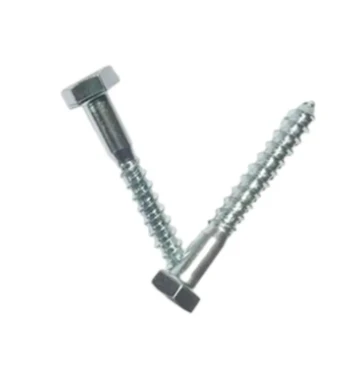Pro . 02, 2024 04:13 Back to list
all thread fasteners
Understanding All Thread Fasteners Versatility and Applications
All thread fasteners, commonly known as all-thread rods or studs, are versatile and essential components used across various industries for structural and mechanical applications. These fasteners are characterized by being threaded along their entire length, as opposed to having threads only on one end. This unique feature allows for greater flexibility in assembly, making them a popular choice for a range of construction and manufacturing tasks.
One of the primary advantages of all thread fasteners is their ability to be cut to desired lengths. This adaptability makes them ideal for applications where the length of the bolt or rod may vary. Construction projects, for example, often require specific measurements to fit into precise structural frameworks. With all thread fasteners, builders can cut the rods to the exact length needed, ensuring a secure and stable installation.
In addition to their customizable lengths, all thread fasteners are available in various materials, including stainless steel, carbon steel, and even plastic. This variety enables engineers and manufacturers to select the appropriate fastener type based on the environmental conditions and mechanical requirements of their projects. For instance, stainless steel all thread fasteners are particularly suited for outdoor applications or environments prone to corrosion, thanks to their resistance to rust and decay.
The application of all thread fasteners is widespread. In the construction industry, they are commonly used to connect structural elements such as beams and columns, providing significant tensile strength. In the realm of manufacturing, these fasteners play a crucial role in assembling machinery and equipment where secure and stable connections are vital for operation. Additionally, all thread rods are often employed in anchor systems, securing structures to concrete or earth, providing stability in diverse conditions.
all thread fasteners

One of the less obvious but significant benefits of all thread fasteners is their ease of installation. Because they can be secured using nuts at both ends, they allow for even distribution of load, minimizing the risk of failure. This feature is particularly valuable in applications that experience dynamic loads, where movement or vibrations could otherwise loosen conventional fasteners.
Moreover, the versatility of all thread fasteners extends beyond just construction and manufacturing. They are increasingly being utilized in DIY projects and home improvement tasks. Whether it's creating furniture, securing a deck, or constructing outdoor structures like pergolas, all thread fasteners provide a reliable and efficient solution for various home renovation needs. Their availability in hardware stores and online reinforces their appeal, as DIY enthusiasts can readily find the components they need for their projects.
Despite their many advantages, it is essential to consider proper torque and installation practices when using all thread fasteners. Over-tightening can lead to material fatigue or structural damage, while insufficient tightening can compromise the integrity of the connection. It is advisable to follow industry guidelines and manufacturer recommendations to ensure safety and performance.
In conclusion, all thread fasteners are invaluable components in numerous industrial and domestic applications. Their versatility, customizable lengths, and ease of installation make them a go-to choice for engineers, builders, and DIY enthusiasts alike. With an understanding of their properties and appropriate usage, all thread fasteners can significantly enhance the integrity and reliability of any project they are used in. As industries continue to evolve, the application of all thread fasteners will undoubtedly expand, underscoring their importance in modern construction and manufacturing.
-
The Ubiquitous Reach of DIN934 in Application Realms
NewsMay.16,2025
-
Exploring Different Bolt Types
NewsMay.16,2025
-
Cracking the Code of Sleeve Anchor Mastery
NewsMay.16,2025
-
Clamp Design Principles,Types and Innovations
NewsMay.16,2025
-
Artistry Inspired by the Humble Anchor Bolt
NewsMay.16,2025
-
A Deep Dive into Screw Types
NewsMay.16,2025


